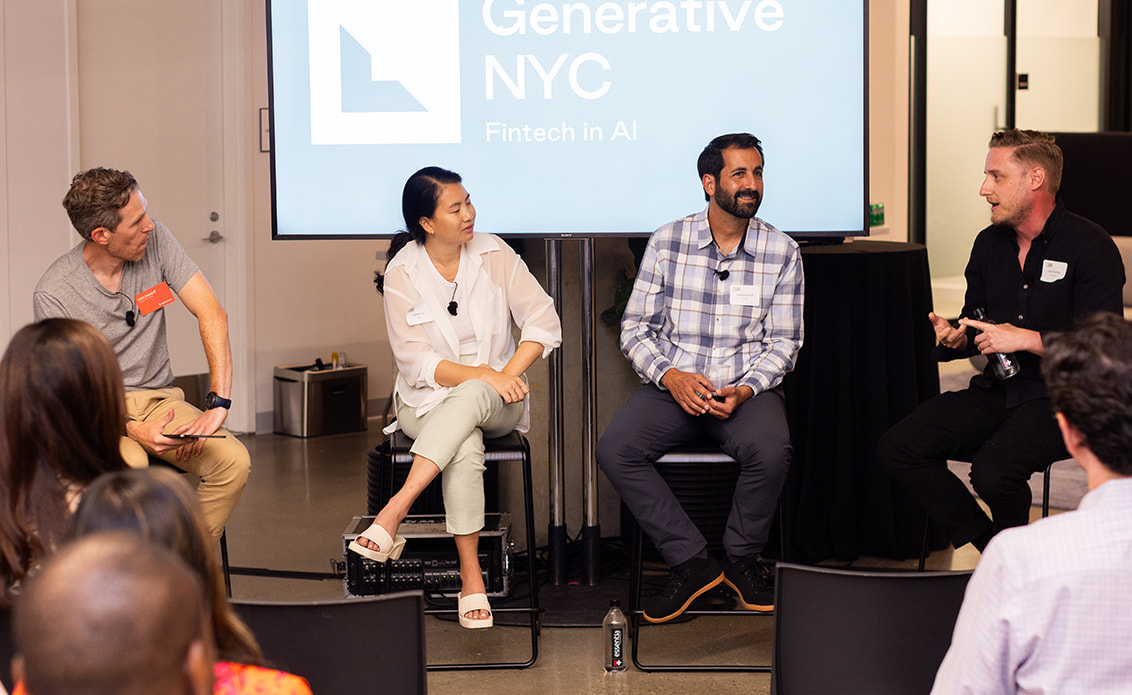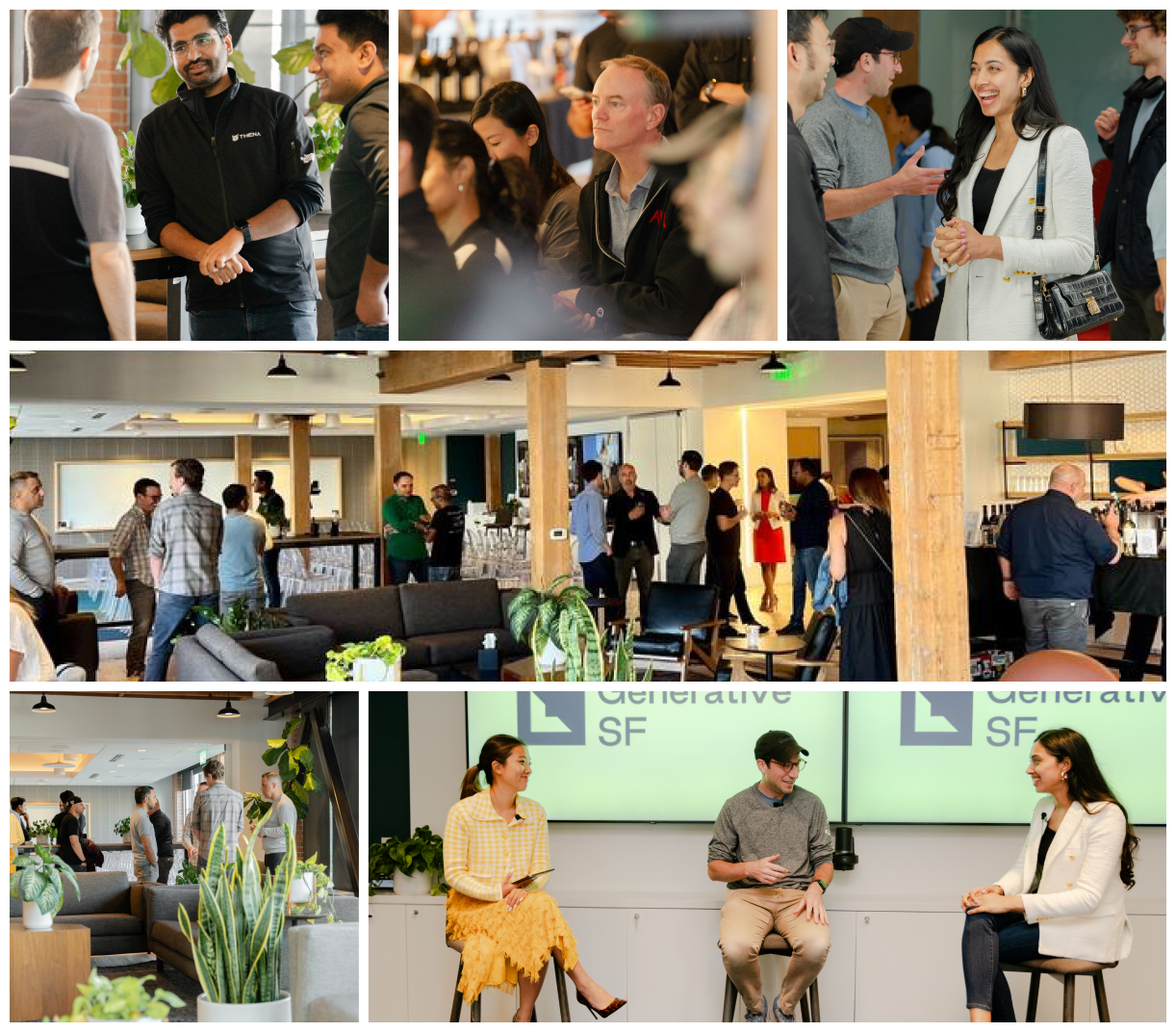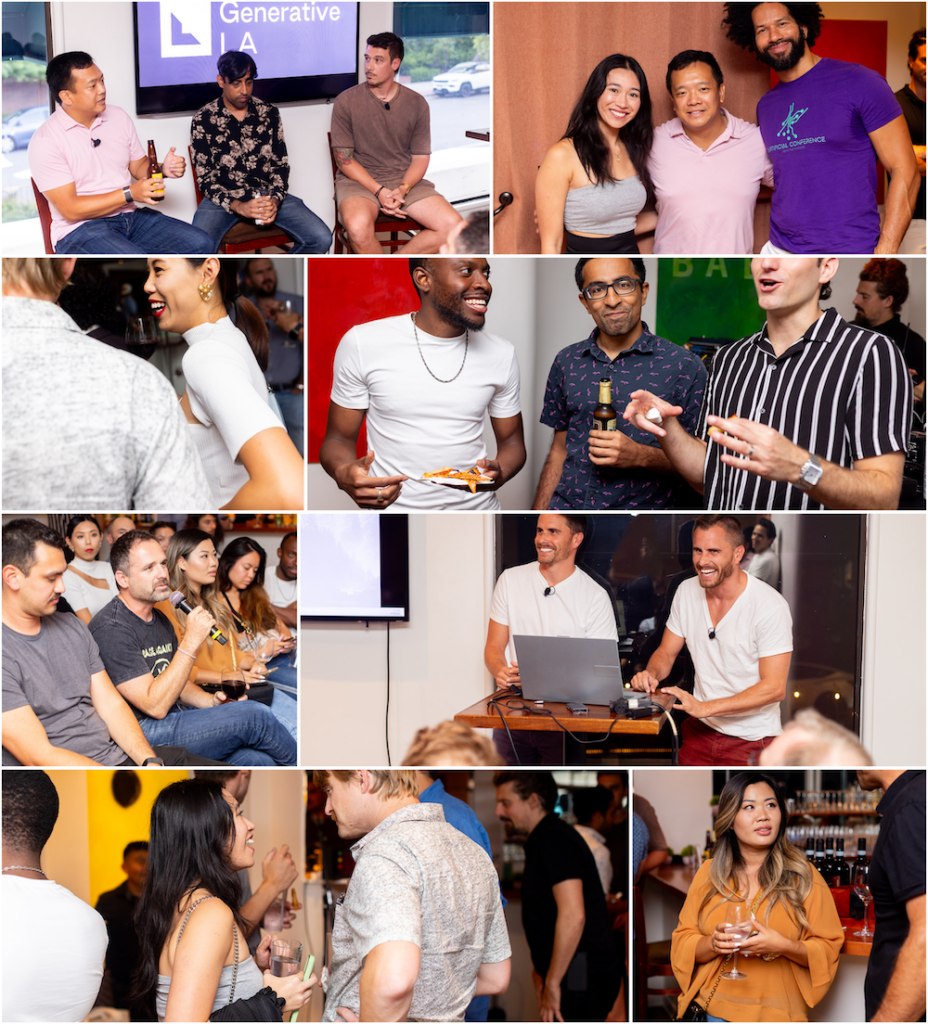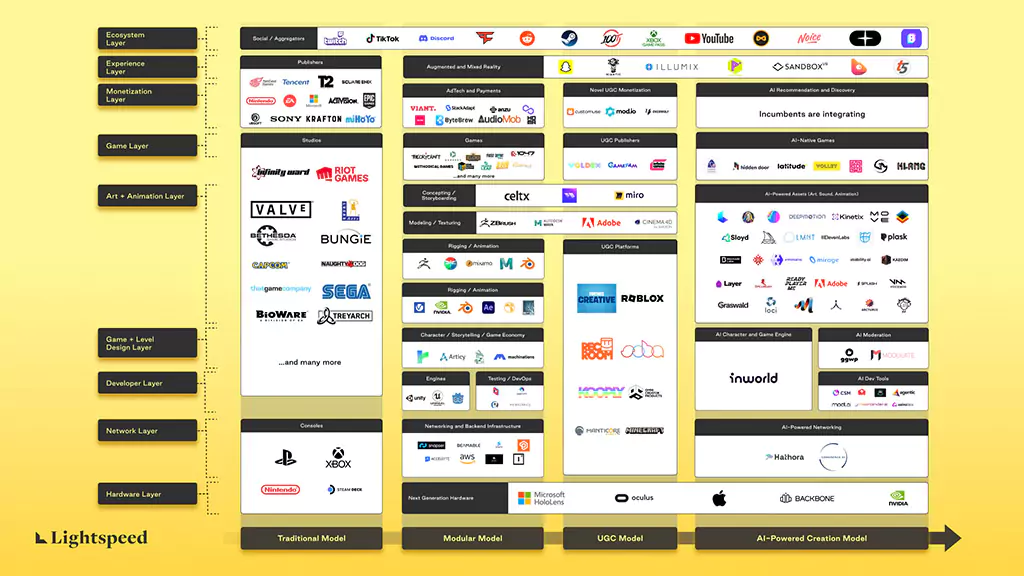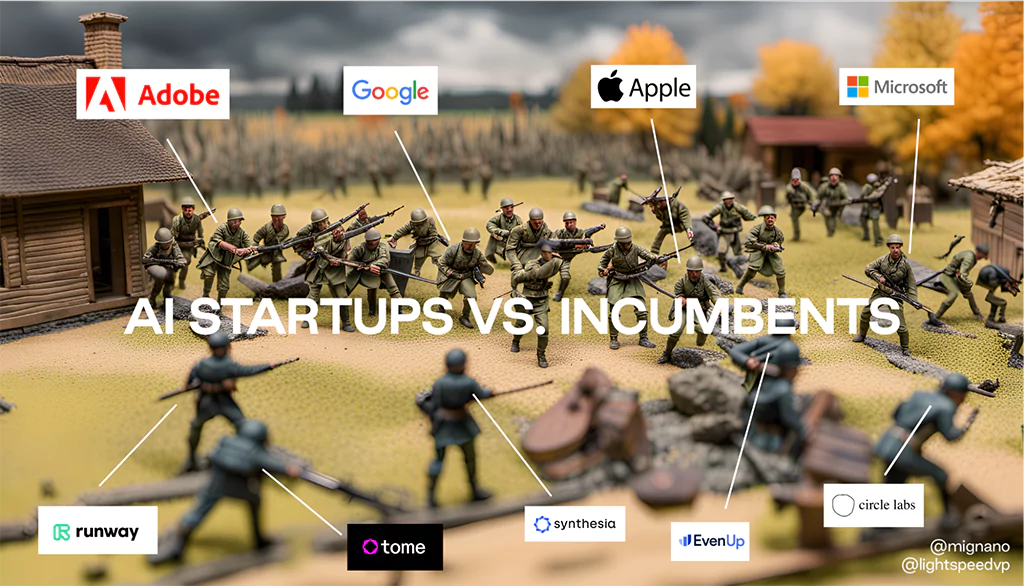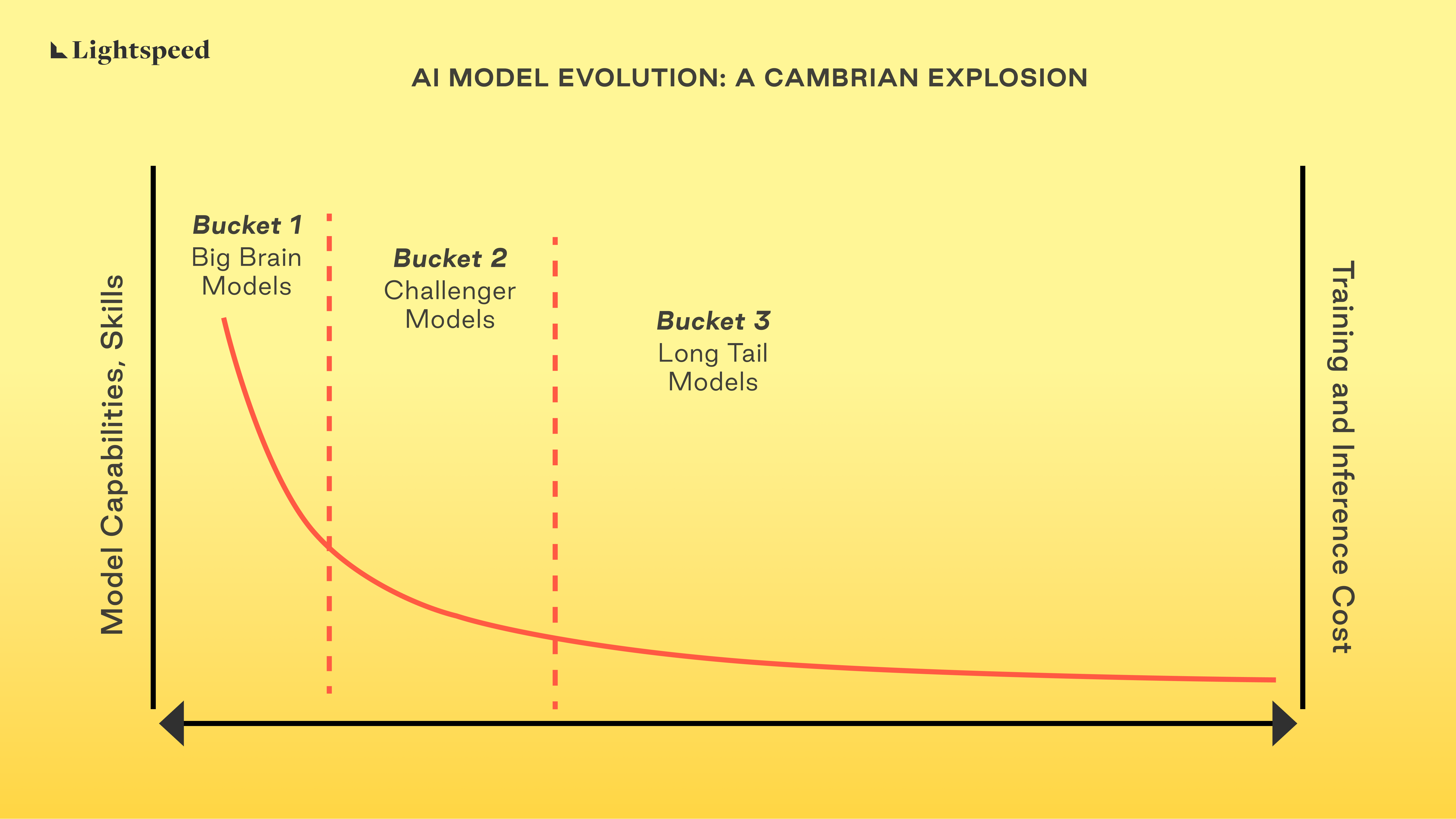- Buzzworthy 🐝
- Posts
- You're Kenough!
You're Kenough!
Startup takeaways from the Barbie movie, perspectives on network effects in AI, LA meetups, new deals, and much more!
Welcome to the 3rd edition of Buzzworthy!
We hope everyone had a restful & relaxing end to the summer. As with past years, the venture market has kicked back into high gear post-Labor Day, and in parallel public markets are heating up as well with the recent listings from Arm, Klaviyo, and Instacart cracking the IPO window wide open. Is it too soon to say…we are so back!
Bucking the stereotypical VC summer Burning Man + Amalfi Coast meme culture, Lightspeed continued to ramp up investment activity in July/August, with a few notable deal announcements including Inworld’s $50M Series B, Endor Labs’ $70M Series A, and Resilience’s $100M Series D. And judging from activity the past few weeks, you can expect quite a few additional announcement coming up in the next edition of Buzzworthy…
Today we’ll cover a slew of topics ranging from moats in consumer AI to the latest buzz in the LA tech scene to our feature story on founder lessons from the Barbie movie that took theaters (and pop culture more broadly) by storm the past couple months.
Let’s jump in!

(AI-generated) Nicole & Faraz dressed up in pink and ready for the Barbie premiere!
The talk of the town last month was the impact of two blonde icons, Taylor Swift and Barbie, “carrying the economy on their backs” — and the numbers speak for themselves! Taylor Swift’s Eras Tour is pacing to clear $1 Billion in gross revenues, and Barbie passed that threshold in just 17 days to become the first billion-dollar female-directed movie.
Beyond being extremely entertaining from beginning to end, the Barbie movie had many life lessons for viewers of all ages. And we found many of these lessons also have parallels for founders on their startup journeys.
(1) “Barbie has a great day everyday, but Ken only has a great day if Barbie looks at him”
One of the first iconic quotes of the movie comes when Ken, the film’s antagonist, is introduced. Relying on external validation (as Ken so often does) is a challenge many startup founders run into. Instead, it’s important to not rely on VCs, media, competitors, and customers for this validation, but rather stay focused on executing the business & product plan determined by the team and the board to the best of your ability. Remember, “you’re Kenough” and the results will show!
(2) There’s no such thing as “stereotypical Barbie”
Every startup journey is different, often windy and challenging and fun and rewarding all in one. Just as there is no stereotypical Barbie, there is no stereotypical startup journey. Founder should always look to blaze their own path and not rely too heavily on the playbooks of founders before them. Having unwavering confidence in yourself and your idea is absolutely paramount.
(3) “Basically everything that men do in your world, women do in ours”
Female founders make some of the most effective CEOs, but it’s been well-documented that they often face underfunding (<2% of VC dollars in 2022) and unfair expectations, but that should not be the case. As an industry we need to do a better job of empowering female founders, because they CAN do everything men can do in our world too, not just in Barbie’s world.
(4) “Barbie is a doctor, and a lawyer, and so much more than that”
Entrepreneurs wear so many different hats in building a business (especially in the early days — from legal to accounting to hiring to sales and so much more) that nobody on the outside really knows the full extent of. Founders often have the perspective that no task is outside of their scope and constantly have a growth mindset just like Barbie, and this allows them to accomplish more than even they could have imagined.
(5) Embrace diversity and teamwork
In the end, it took all the Barbies will all their unique skillsets to team up to quell the Ken takeover. The same is often true for the most successful startups — having a team with well-rounded perspectives & complementary skillsets is critical to out-executing established incumbents who have the initial advantage in terms of distribution & brand. Diversity of perspectives should be an important consideration for founders in both hiring as well as picking which investors to work with.
(6) It takes a village…
The reason Barbie’s world is able to exist as an idyllic utopia is because everyone plays a significant role in taking care of the community and nature. This lesson directly applies to our world today as we face climate change head-on and need all consumers to pitch in. At Lightspeed, we are increasingly focused on climate startups and environmental change, and the opportunity to meaningfully benefit society and the future is clear for founders in the climate space!
(7) Weird Barbie saves the day!
Throughout the movie, Weird Barbie proves to be one of the most valuable Barbies, in large part because of the wisdom she brings to every challenge Barbie faces. Often times, the weird startups (particularly in consumer) are also the ones that end up being most valuable. Our friend Lenny Rachitsky did an incredible analysis a couple years back of the largest outcomes in consumer startups, and so many of them looked “weird” (trivial/toy and/or impossible) in the early days.
(8) “Humans only have one ending, but ideas live forever”
For many founders, your startup is one of the most important parts of the legacy you will leave behind. What is stopping you from building the next world-changing company, from becoming the next Bill Gates or Elon Musk? We always push ourselves and our founders to think as big as possible, because there is potential the business will “live forever” if we dream big enough.
What other learnings did you take away from the Barbie movie? We can’t wait to hear from you!
Poll: Networks effects as a moat in AI?
Recently, our colleague Michael Mignano published a thought piece around moats in consumer AI (highlighted below). One notable exclusion from the list was network effects. Network effects, as historically defined, “refers to any situation in which the value of a product, service, or platform depends on the number of buyers, sellers, or users who leverage it” — the greater the number of (human) users, the greater the value created by the business.
While network effects have served as an effective moat for the vast majority successful consumer startups over the past two decades — marketplaces (eBay, Uber), social media (Meta/Instagram/Snap), and fintech (Venmo/Paypal) just to name a few categories — the answer as to whether network effects will remain a moat in the AI age remains an open question.
In the previous generation of the internet, so many special businesses built defensibility around network effects that has endured. But if you don’t necessarily need humans on the other side of your online engagement to have the same (or more) entertainment & utility, does that render network effects less effective as a moat?
Playing games with AI NPCs (that are personalized and potentially more engaging than human multiplayer online). Online dating with AI bots. Social platforms where interacting with AI characters is core to the experience. Content platforms where users consume content exclusively created by AI. These are just a few examples of the direction AI can take consumer applications.
We’d love your thoughts on the quick 1-question poll here ⬇️
Will AI render network effects no longer effective as a moat in consumer businesses? |
What else is buzzin’ at Lightspeed…
Events
Lightspeed LA Consumer Social Salon: Alongside our co-hosts and John Legend and Mike Rosenthal, we brought together an intimate group of local leaders innovating in consumer social at both scaled (incl. Twitter, Snap, Discord) and startup companies for a discussion spanning everything from product prioritization to solving the consumer cold start to modern approaches to social monetization. The conversation delved deep into several of the key opportunities we covered in our post earlier this year titled Consumer Social is Going Back to the Future and the biggest takeaway (despite broader VC market bearishness) is that the opportunity to build the next disruptive social platform is very much here & now!

Lightspeed LA Product Builders Meetup: Doubling down on Lightspeed’s commitment to the Southern California startup ecosystem, we also hosted a product/engineering leadership meetup with notable LA-based executives from scaled companies including Snap, Amazon, YouTube, Microsoft, Venmo, and PagerDuty. Conversations covered everything from LA’s acceleration as a talent hub to recent local advances beyond consumer to sectors including gaming, fintech, and biotech. More key takeaways from the evening linked below:
Generative Meetups in SF, LA, and NYC: Building on the momentum from the aforementioned Generative meetup series, Lightspeed hosted groups of AI builders, engineers, PMs, and designers across all of our major US hubs in August. Key learnings from each meetup linked below:
AI Perspectives
2023 will forever be regarded as the year AI went mainstream (in part bolstered by ChatGPT bringing AI awareness beyond B2B use cases to everyday consumers in late 2022) - but Lightspeed has been investing in AI stretching back over a decade. In addition to publishing our (constantly updating) AI portfolio stack pictured, our Lightspeed partners also shared the thoughtful pieces covering the AI opportunity in Gaming, moats in consumer AI, and perspectives on model dominance in enterprise AI linked below:

Until next time!
Buzzworthy 🐝 is a regular(ish) consumer newsletter written by Nicole Quinn and Faraz Fatemi, investing partners at Lightspeed Venture Partners. We cover a little bit of everything from tech & VC to travel & lifestyle trends, and we promise to never take ourselves too seriously 😊

